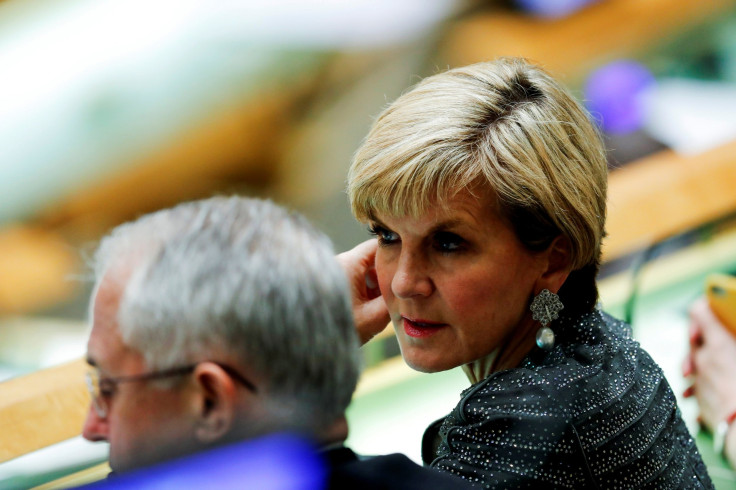Foreign Minister Julie Bishop to meet US VP Pence to 'reinforce Australia's committment to the alliance'

Foreign Minister Julie Bishop will pay a visit to the US to meet with Trump officials this week. She is scheduled to meet US Vice President Mike Pence and US Secretary of State Rex Tillerson.
As part of the meeting, Bishop hopes to acquire some insight into the US strategy to fight militants in Iraq and Syria. The new strategy will be handed down in a fortnight.
Australia is currently training troops and carrying out air strikes in Iraq and Syria. Prime Minister Malcolm Turnbull said the country will consider on merit any request asking for further commitment in the Middle East. As many as 70 defence personnel are engaged in air strikes, special operations and training Iraqi soldiers and police.
"I will reinforce Australia's commitment to the alliance and to our ongoing co-operation in responding to regional and global challenges, including to the US-led coalition to counter Daesh," Bishop said in a statement, as reported by AAP (via Sky News).
Opposition foreign affairs spokeswoman Penny Wong would not comment on whether or not Labor would support upping Australia's military presence in the region. "There hasn't been a case made publicly as to why extending Australia's current commitment to the fight against Daesh would be in Australia's national interest," she said.
Bishop’s visit to Washington DC comes on the heels of the much talked about phone call between Turnbull and US President Donald Trump. The call concerned the refugee resettlement deal struck between Canberra and former President Barack Obama.
According to the Washington Post, while the call was supposed to last for an hour, it was cut short in 25 minutes. Trump described it as the “worst call by far” in the day. “It's better that these things -- these conversations are conducted candidly, frankly, privately,” Turnbull had said following the phone call. “If you see reports of them, I'm not going to add to them.”
Trump said he would honour the deal, though he labelled it as “dumb.” He said “extreme vetting” would be required for refugees in Nauru and Manus Island seeking admission into the United States.
Despite the controversial phone call, Turnbull maintained the relationship between the two countries remains strong. “The Australia-US alliance, relationship, is very deep. It's built on over a century of fighting side by side in every major conflict,” he said, speaking with Bloomberg. “It's an alliance, it's an economic partnership, and it's built on millions of people-to-people links and family links.” A campaign to have Turnbull speak at a joint sitting on Congress during his first face-to-face talks with Trump later this year is in the works.





















